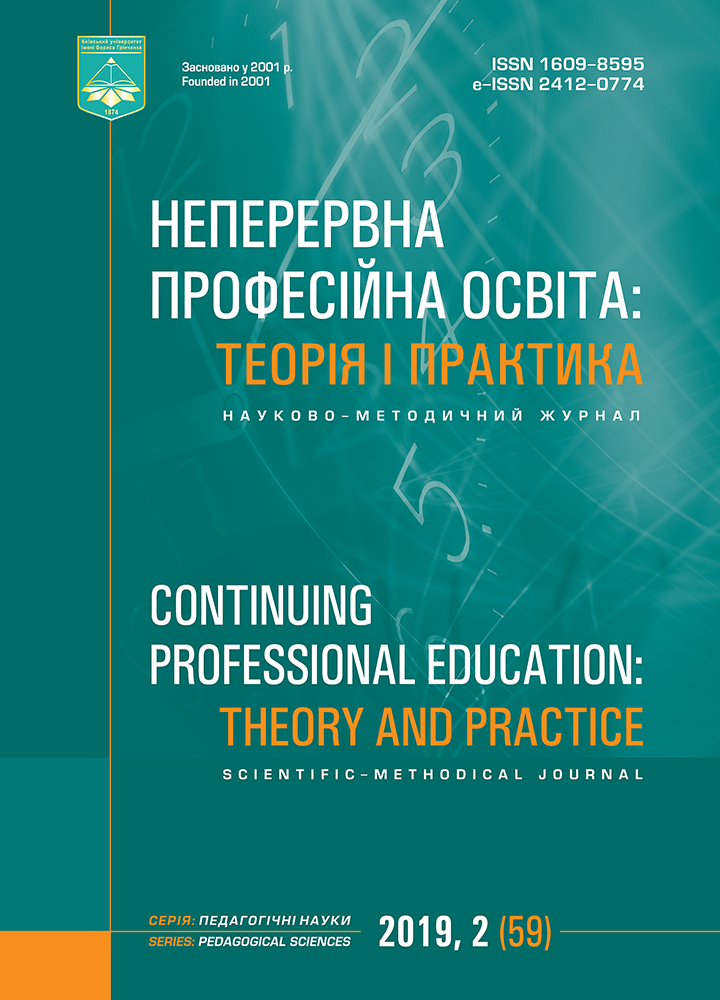PROFESSIONAL BURNOUT OF TEACHERS: THEORETICAL AND PRACTICAL ASPECTS
DOI:
https://doi.org/10.28925/1609-8595.2019.2.2834Keywords:
potential, profession, professional burnout, syndrome, teaching hours.Abstract
Professional burnout of teachers is a very common and urgent problem for nowadays society. The problems connected with the mental health, manifestations of the emotional burnout syndrome directly affect the health not only of the teachers themselves but also have great impact on their students. The work of the teacher does not possess set timing which leads to an increase in the time expenditures on the various structural elements of the work. The lack of the ability or skill to relax, find hobby increases the risk of the representatives of the teaching profession to gain the disease called professional burnout. It is clear that prevention steps are easier to be performed than to overcome the gained illness. These several approaches how to organize the life of the ordinary teacher out of his work are offered in the article. It is important that the problem of the mental state of the teacher was valued not only by him but at the same time by his managing authority. It will play crucial role in the process of work, promote professional longevity. Healthcare is not to be underestimated at any stage. Therefore, there is a need to develop at the state level the program for the preservation of professional health of the teacherReferences
Koltunovich, T. A. (2016). Yak ne zgority v polum’i profesii [How not to burn in the flame of a profession].
Chernivtsi, Ukraine: Technodruk (ukr).
Vasserman, L. I., Iovlev, B. D., & Berebin, M. A. (2004). Metodika dla psihologicheskoi diagnostiki urovnia socialnoi frustrirovanosti I prakticheskoe priminenie [Methodology for psychological diagnostics of the level of social frustration and its practical application]. Saint Petersburg, Russia: Piter (rus).
Tyapkina, A. D. & Kovrigina, T. R. (2010). Osnovnie factory riska truda uchitelia [The main factors of the risk of teacher’s work]. Proceeding from: I zaochnoi vserosiiskoi nauchnoi prakticheskoi konferncii «Zdorovie pedagoga: problemy i puti reshenia» –I scientific practical distance conference «Health of the teacher: problems and solutions» (pp. 44–48). Omsk, Russia: BOU DPO «IROOO» (rus).
Makarov, V. V. (1999). Lekcii po psihotarapii [Lectures on Psychotherapy]. Moskow, Russia: Akademicheskij proekt, Ekaterinburg, Russia: Delovaya kniga (rus).
Freudenberger, H. (1994). Staff burnout. Journal of Social Issues, 30, 159–165 (eng).
Maslach, C., Golberg, J. (1998). Prevention of burnout: New perspectives. Applied and Preventive Psychology, 7, 63–74 (eng).
Downloads
How to Cite
Issue
Section
License
Copyright (c) 2020 Natalia Machynska, Yuliya Derkach

This work is licensed under a Creative Commons Attribution-NonCommercial 3.0 Unported License.



